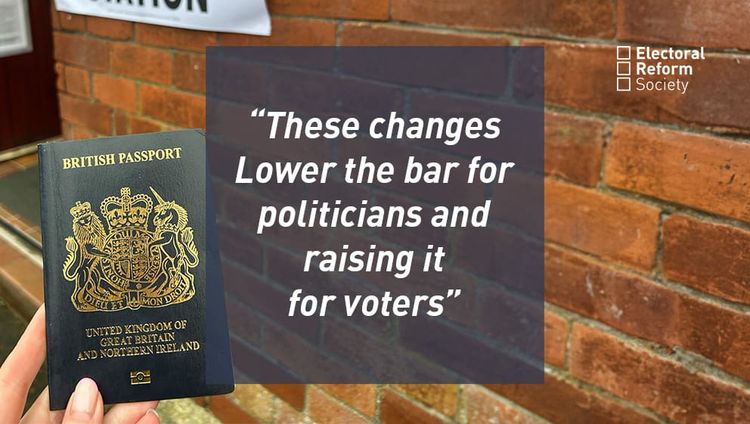Voters are being treated as guinea pigs in this year’s local elections

On this day, May 2nd, a vast number of citizens are anticipated to go to their respective voting locations to choose over 2,500 councilors, 37 police and crime commissioners, 10 mayors in metropolitan areas, 1 MP (a by-election in Blackpool South), as well as Members of the London Assembly.
On May 2nd, all qualified voters residing in England and Wales will be given the chance to vote. However, the procedure will be different than what we are used to. The government has made two significant changes in the voting system under the Elections Act 2022, using the voters as test subjects for their electoral experiments.
First Past The Post: Millions Of New Voters
The upcoming elections in Wales and some areas of England have implemented a new policy that mandates first-time voters to present their Voter ID. The ERS has been against this rule since the Pickles Report of 2016, as it believes that it is excessive and unnecessary, similar to using a huge tool to solve a small issue.
Elections in the UK are held in a secure and trustworthy manner, as evidenced by the relatively low number of convictions (only 10) between 2019 and 2023 for individuals attempting to impersonate others at polling stations.
We have a notion of what the outcome of this experiment would be. In the recent local election of 2023, a considerable number of voters, up to 14,000, were denied their right to vote due to their lack of identification, and they did not come back later to cast their ballots. Preventing a few cases of voter fraud by depriving over 14,000 citizens of their fundamental right to vote is a harmful remedy.
Being A Mayor Or Police Commissioner Is Now Easier!
A modification that hasn't received as much media attention as the implementation of Voter ID is the alteration of the voting process for Police and Crime Commissioners and Metro Mayors. The change is from the conventional Supplementary Vote system to the First Past the Post system.
Under the conventional method, people indicated their preferred candidates by ranking them from the first to the second place. In cases where no candidate received a majority of the votes, the system analyzed the top two contenders and determined the one with the greater level of popular support. This approach ensures that influential positions are not dominated by a select few individuals.
During the 2023 minor mayoral elections, we observed a transformation of the elected candidate's outcome due to this alteration. In Bedford, the Conservatives won the mayoralty by a slim margin of only 145 votes more than the Liberal Democrat, with a 33% stake. In 2019, the Lib Dem candidate acquired a 54% mandate after the 2nd preference votes were calculated, allowing them to claim victory.
It is not advisable to have mayors who hold the authority to approve substantial budgets unless they have widespread backing.
In the system called First Past the Post, mayors are not required to seek approval beyond their main supporters, leading to a decrease in their authority to govern.
Politicians' Bar Lowered, Voters' Bar Raised
Basically, the alterations to the electoral process have made it more difficult for citizens to vote as they now need to show identification, while at the same time, it has become easier for politicians to rule even if they don't have broad public backing, thanks to the FPTP system.
Politicians ought to simplify the process for voters to scrutinize them, instead of experimenting with plans prior to the nationwide election and neglecting the evident consequences.
"How Have These Changes Affected You?"
Did you get rejected? Share with us the circumstances of what occurred.

















































